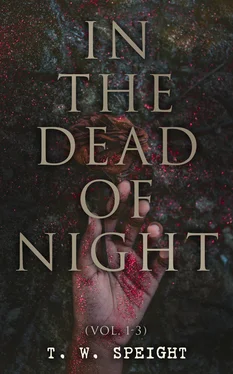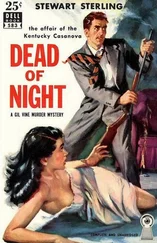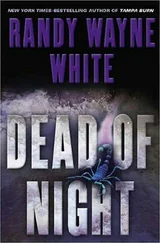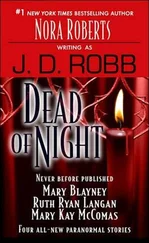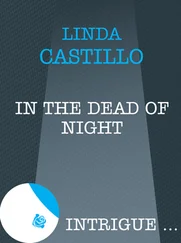T. W. Speight - In the Dead of Night (Vol. 1-3)
Здесь есть возможность читать онлайн «T. W. Speight - In the Dead of Night (Vol. 1-3)» — ознакомительный отрывок электронной книги совершенно бесплатно, а после прочтения отрывка купить полную версию. В некоторых случаях можно слушать аудио, скачать через торрент в формате fb2 и присутствует краткое содержание. Жанр: unrecognised, на английском языке. Описание произведения, (предисловие) а так же отзывы посетителей доступны на портале библиотеки ЛибКат.
- Название:In the Dead of Night (Vol. 1-3)
- Автор:
- Жанр:
- Год:неизвестен
- ISBN:нет данных
- Рейтинг книги:5 / 5. Голосов: 1
-
Избранное:Добавить в избранное
- Отзывы:
-
Ваша оценка:
- 100
- 1
- 2
- 3
- 4
- 5
In the Dead of Night (Vol. 1-3): краткое содержание, описание и аннотация
Предлагаем к чтению аннотацию, описание, краткое содержание или предисловие (зависит от того, что написал сам автор книги «In the Dead of Night (Vol. 1-3)»). Если вы не нашли необходимую информацию о книге — напишите в комментариях, мы постараемся отыскать её.
In the Dead of Night (Vol. 1-3) — читать онлайн ознакомительный отрывок
Ниже представлен текст книги, разбитый по страницам. Система сохранения места последней прочитанной страницы, позволяет с удобством читать онлайн бесплатно книгу «In the Dead of Night (Vol. 1-3)», без необходимости каждый раз заново искать на чём Вы остановились. Поставьте закладку, и сможете в любой момент перейти на страницу, на которой закончили чтение.
Интервал:
Закладка:
Janvard had one relation in England--a sister--with whom he was on terms of close and affectionate intercourse. Both he and his sister were unmarried, and they both intended to remain so. Madame Janvard--she was called madame out of compliment to her age, which was nearer fifty than forty--kept a small boarding-house for her countrymen in a narrow street no great distance from Leicester Square. She had saved money, had madame. So had her brother. And the secret ambition of the two was to unite their fortunes, and start together as proprietors of a first-class hotel.
Pierre's holidays and leisure time, when he was in town, were always spent with his sister, in whose house one little cockloft of a room was set specially apart for him, and was full of his property. Here he kept a few boxes of choice cigars for his own private smoking, and a varied assortment of French novels and plays, together with sundry articles of bric-à-brac which he had picked up during his travels. But, in addition to these articles, the room contained several remarkable mementoes of the Great Revolution, which had come down to Pierre from his grandfather. In one corner hung the veritable pair of shoes worn by Charlotte Corday on the day that she stabbed Marat. In a little glass box on the chimney-piece was a lock of hair shorn from the head of Marie Antoinette after execution. Near it was a handkerchief that had belonged to the Princess de Lamballe. On a bracket opposite the window stood a life-size bust of Marat himself, the hideous head crowned with the bonnet rouge, and inscribed below, Le Génie de la Révolution . Near at hand was a working model of the guillotine, made by the redoubtable hands of old Martin Janvard, and close by it a model of one of the tumbrils in which the condemned were conveyed to the Place de la Grève. In this room Pierre and his sister had many pleasant little banquets all to themselves, and many a long chat on matters past, present, and to come. Not having her to talk to to-night, he was going to write to her, which was the next best thing he could do. So when he had yawned through a couple of chapters of the novel, he took pen and paper, and sat down at Mr. St. George's table, being perfectly aware that he was safe from interruption for another hour at the least. Judging by what Pierre Janvard wrote, there would seem, this evening, to have been a strange similarity in the trains of thought at work in the minds of master and man.
"We are once again back in the old place, chère Margot," wrote the Frenchman. "Was it only yesterday, or is it more than a year ago, since we were in these rooms last? Everything seems as it used to be, except that the old master's voice is heard no longer. He lies cold and quiet in the churchyard. Nothing else seems changed, and yet how changed is all! For a new master now reigns at Park Newton, and that master is not Monsieur Kester St. George. Of course we have known of this all along, but not till we came here did we seem to realize all that it means. One man, and one man only, stands between my master and all this vast property. That man, as you know already, is his own cousin. He is not married, but he may be before long. If he were only to catch a fever and die--if he were only to commit suicide--if he were only to fall into the river and be drowned--ah, my faith! what luck would then be ours!
"And yet, somehow, little one, I feel as if I should hardly like to change places with this Monsieur Dering. I don't know why I feel so, but there the feeling is, and I tell you of it. Life is so strangely uncertain, you know; and it seems to me more uncertain still when you stand so terribly in the light of another man. Perhaps you will say that I am superstitious. So be it. But can any man say where superstition begins and where it ends, even in his own mind? I can't. All I know is this: that if I were Monsieur Dering, the last man in the world whom I would ask to cross my threshold would be Monsieur Kester St. George."
A fortnight had come and gone since the arrival of Kester St. George and Percy Osmond at Park Newton. Another week would bring their visit to an end, and Lionel Dering was fain to confess to himself that he should not be sorry when that time had arrived. This was more particularly the case as regards Osmond, of whose company he had grown heartily tired. There was, indeed, about Osmond little or nothing that could have any attraction for a man like Lionel Dering. The points of difference between them were too great for any hope to exist that they could ever be bridged over. Friendship between two such men was an impossibility.
With Kester St. George the case was somewhat different. Lionel would gladly have clasped his cousin's hand in friendship, but he had begun to find out that beneath all Kester's geniality, and easy laughing way of dealing with everything that came before him, there existed a nature cold, hard, and cynical, against which the white wings of Friendship or of Love might beat in vain for ever. He was always pleasant, always smiling, always good-tempered: yet it seemed impossible to get near him, or to feel sure that you knew him better at the end of a year than on the first day you met him. Then, too, Lionel was not without an uneasy sense that not only the servants at the hall, but his own social equals in the neighbourhood, looked upon him in some measure as an interloper, and seemed to think that he must, in some inscrutable way, have defrauded his cousin out of his birthright. No wonder Lionel felt that it would be a relief when the visit should have come to an end.
He took an opportunity one day, when Kester seemed in a more confidential mood than usual, of again hinting at the pleasure it would give him if his cousin would only accept that three thousand a-year out of the estate which it had been his grandfather's manifest wish should be Kester's share of the property. But Kester froze the moment the subject was broached, and Lionel saw plainly how utterly useless any further persistence in it would be.
Both Squire Culpepper and Mr. Cope had called at Park Newton as soon as they heard that Kester St. George was down there on a visit, and a day or two later Lionel invited those gentlemen, together with several other old friends of his cousin, to a dinner at the hall, in honour of the occasion. Three or four return dinners had been given by different people, and now the day was come when they were all to go and dine with the squire at Pincote--Lionel, Kester, and Mr. Percy Osmond.
The afternoon was cold and gloomy, with frequent showers of rain. Luncheon was just over, and Kester St. George, who had been out riding all the morning, was sitting alone before a cozy fire in his dressing-room, keeping the unwelcome company of his own thoughts. In his hands was a cheque, which Osmond, who had just left him, had given him, in settlement of a long-standing debt at cards.
"The greedy hound!" he muttered to himself. "It was like drawing blood from a stone to get even this paltry strip of paper from him. And yet if this were made out for eight thousand pounds instead of for eight only, it would be honoured. Ay, if it were for six times eight thousand pounds, and there would then be a little fortune left. One thing's very certain. I must raise a couple of thousand somewhere before I'm many hours older, or else I shall have to make a bolt of it--have to put salt water between myself and the hounds that are for ever baying at my heels. If Nantucket had only pulled off the Chester Cup, I should have landed three thousand at the very least. Just like my luck that she should fall lame twelve hours before the race. I must have two thousand," he went on as he rose and began to pace the room, "or else submit to be outlawed. Osmond could lend it to me and never feel the loss of it. Shall I ask him? As well try to move a rock. He knows that I'm poor already. If he knew that I was a pauper he'd cut me dead. No great loss as things go; still, I can't afford to lose him. Shall I ask Dering to help me out of my difficulties? No, never! never! Let ruin--outlawry--suicide itself come, rather than that!"
Читать дальшеИнтервал:
Закладка:
Похожие книги на «In the Dead of Night (Vol. 1-3)»
Представляем Вашему вниманию похожие книги на «In the Dead of Night (Vol. 1-3)» списком для выбора. Мы отобрали схожую по названию и смыслу литературу в надежде предоставить читателям больше вариантов отыскать новые, интересные, ещё непрочитанные произведения.
Обсуждение, отзывы о книге «In the Dead of Night (Vol. 1-3)» и просто собственные мнения читателей. Оставьте ваши комментарии, напишите, что Вы думаете о произведении, его смысле или главных героях. Укажите что конкретно понравилось, а что нет, и почему Вы так считаете.
